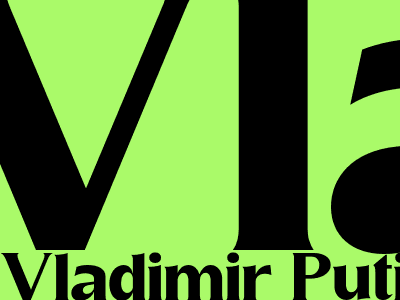
Vladimir Putin
Vladimir Putin's Invasion of Ukraine: A Comprehensive Analysis
The Invasion and Its Immediate Impact
On February 24, 2022, Russian President Vladimir Putin authorized a full-scale military invasion of Ukraine. The invasion marked a significant escalation in the ongoing conflict between the two countries and sparked international condemnation. Russian forces entered Ukraine from multiple directions, targeting major cities, including Kyiv, Kharkiv, and Mariupol. The invasion resulted in widespread destruction, loss of life, and a humanitarian crisis for millions of Ukrainians.
International Response and Sanctions
The invasion triggered swift international condemnation and sanctions against Russia. The United States, the European Union, and other countries imposed severe economic sanctions, including asset freezes and bans on financial transactions, targeting Russia's banking sector, energy sector, and key individuals within Putin's inner circle. The sanctions aimed to cripple Russia's economy and pressure Putin to withdraw his forces from Ukraine.
Russia's Motives and Goals
Russia's motives for invading Ukraine are complex and multifaceted. Putin has stated that the invasion is intended to "denazify" Ukraine, protect Russian-speaking populations in the eastern part of the country, and prevent Ukraine from joining NATO. However, these justifications have been widely dismissed as pretexts for a land grab and an attempt to restore Russia's sphere of influence in the former Soviet Union.
Historical Context and Putin's Ambitions
The invasion of Ukraine is the culmination of long-standing tensions between Russia and Ukraine, which have deep historical roots. Putin has long been a proponent of a "Greater Russia" and has sought to reassert Russian dominance in the region. Ukraine's desire for closer ties with the West, particularly with the European Union and NATO, has been a major source of friction with Russia.
The War's Toll and Humanitarian Crisis
The war in Ukraine has had a devastating impact on the country and its people. Thousands of civilians have been killed, and millions more have been displaced from their homes. The infrastructure, including hospitals, schools, and residential areas, has been heavily damaged. The conflict has created a humanitarian crisis, with millions in need of food, water, shelter, and medical assistance.
War Crimes and Human Rights Violations
There have been widespread allegations of war crimes and human rights violations committed by Russian forces during the invasion. These include indiscriminate shelling of civilians, summary executions, and torture. The International Criminal Court has opened an investigation into these alleged crimes.
Impact on the Global Order and Future Implications
The invasion of Ukraine has had far-reaching implications for the global order. It has shaken the foundation of European security, raised concerns about nuclear war, and caused a global energy crisis. The war has also exposed deep divisions within the international community, with some countries condemning the invasion and others maintaining neutrality or even supporting Russia.
Challenges for Russia and Putin's Legacy
The invasion has been a major setback for Russia and has damaged its reputation on the world stage. The sanctions have crippled the economy, and the war has created significant casualties among Russian forces. Putin's standing has been diminished both domestically and internationally. The long-term consequences of the war for Russia and for Putin's legacy remain uncertain.
Conclusion
The invasion of Ukraine is a watershed moment in international relations, with profound implications for the future of Europe and the global order. The war has caused immense suffering for the Ukrainian people and has raised serious questions about the future of international security. The outcome of the conflict will have a lasting impact on the regional and global political landscape.
Komentar